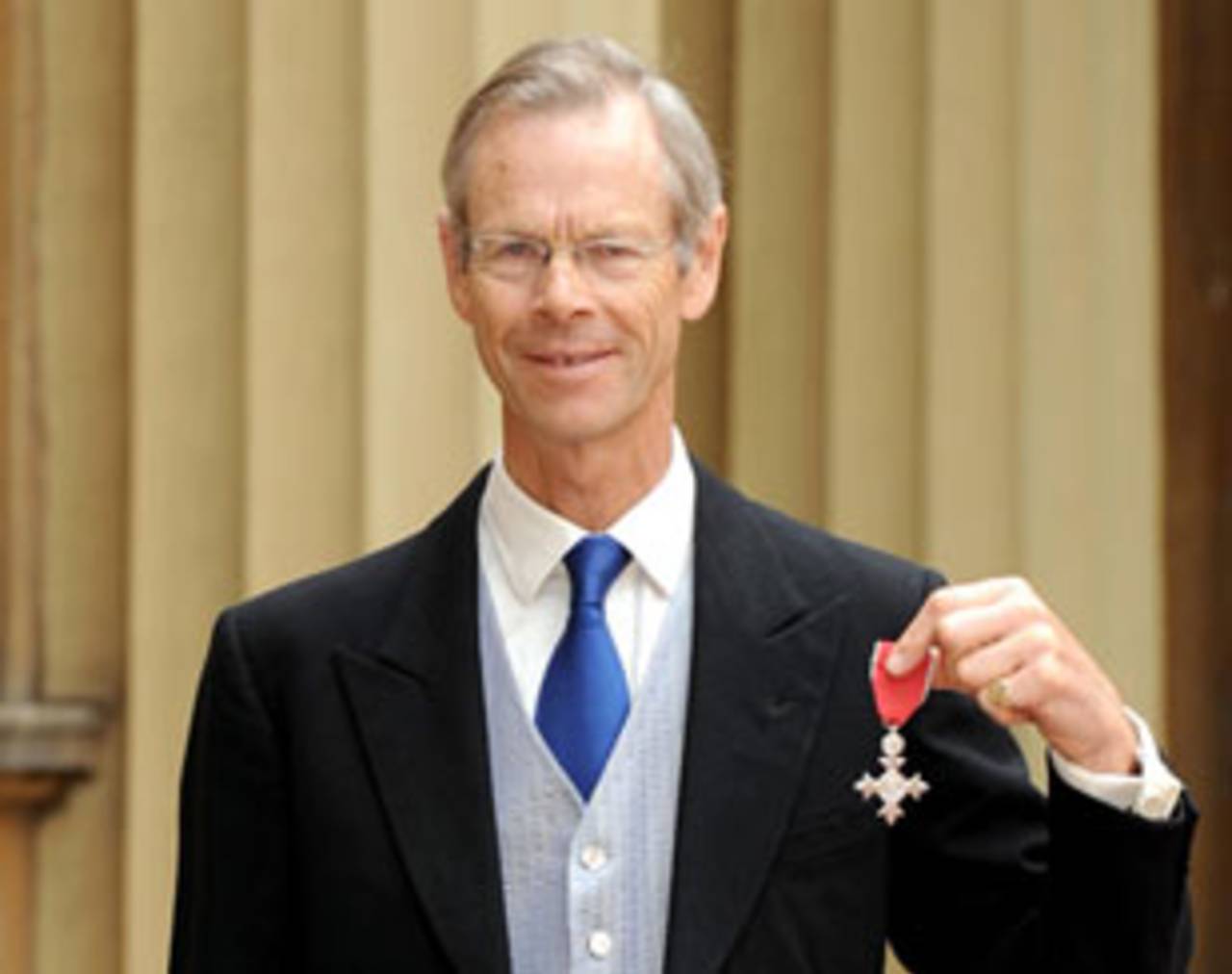Christopher Martin-Jenkins and
Tony Greig took different routes to becoming broadcasting icons. They couldn't have been more different, even though, in a way, both found solace and an identity in cricket.
CMJ was quintessentially English, loved the village green as much as he did Lord's, was educated and erudite and had the most wonderfully mellifluous voice. He was always your friend, speaking in smooth tones, and in my association with him, he never deviated from the courteous. He played just enough cricket to understand the feelings associated with it, which he was able to transmit to eager listeners, of whom hardly any had played international cricket.
Greig was a traveller, was at various times South African, English and Australian, though his definition of his nationality didn't always find widespread acceptance. That was sad because he was actually all three, and that is not easy to be. He played cricket hard, was not afraid of being abrasive, and quite revelled in the role of the showman. Those who knew him better than I did say that this was a façade, but at my level of association that is the feeling I got. He was always energetic, always searching for excitement, and some might say he had the right voice for that style.
They were as different as maple syrup and vinegar, but they had one thing in common. They understood their medium and their craft very well, and were willing to work at it. In Greig's case his popularity as a broadcaster even overwhelmed his substantial persona as a cricketer of some distinction. To neither of them was broadcasting a lazy second option.
The broadcasting world is significantly poorer for their absence. And as we mourn them, we must also look at the changing contours of the profession, as the beauty of the spoken word and the elegance of description are increasingly rendered irrelevant in the chase of the box-office name. A younger version of Tony Greig can still hope to have a commentary career if he is willing to learn the skills that the great Channel 9 quartet of Benaud, Chappell, Lawry and Greig had, but another talented CMJ cannot even dream of it.
I mean no malice when I say this, for it can easily be construed as making a case for my constituency. I have already had an innings better than I could have imagined, but I was able to because traditional broadcasting skills were sought after when I was growing up. Today the genuine flag-bearers of the CMJ school are virtually extinct. Jonathan Agnew at the BBC's Test Match Special is excellent but he had a fair career in first-class cricket and even toured with England, so we will have to leave him out. As indeed we must the classy Alan Wilkins and Mike Haysman, and the outstanding Mark Nicholas.
There is no point in reminiscing about a Cardus, an Arlott and a CMJ and applauding a Cozier if we crush the next generation possessed of those talents
But look beyond. The great Tony Cozier, hero to so many of us, is winding down, and Fazeer Mohammed is trying to fill those giant shoes. And in Australia, Jim Maxwell remains the voice of their cricket and a deeply committed lover of the game. But neither he nor Fazeer are really in the most powerful, most influential medium of them all.
And so I wonder where the next CMJ or Cozier or Maxwell will emerge from. Or whether the opportunities for many talented young people here in India are forever gone. And indeed whether the game becomes richer by shutting these people out. The essence of broadcasting remains the ability to communicate the drama to those watching or listening; to be able to educate but also to get them to feel the emotion, for that is what sport really is, a great theatre of emotions. Sport needs narrators to bring the game alive, and even if you have been there yourself as a player, you must possess the ability to tell the story in as compelling a manner as possible.
Now imagine the plight of a bright young talent in India. Radio as a career doesn't exist and that is cruel. Indeed I dream of the day when somebody in power understands the beauty of radio, but till then we in India must be denied it. Most newspapers don't have cricket writers; the local man does international cricket and in any case very few sports editors seem convinced of the need to have the day's play reviewed. Television shuts its door on them, fishing in a smaller pond as it does. And I believe the game is poorer for this, a fact I am convinced of every day as I read pithy, studied and stylishly written articles on the net.
We need nurseries. My heart sinks as I see young reporters being indoctrinated into that suicidal rush for speed over authenticity, for volume over content, for 15 minutes of attention over a lifetime of trust. They must sniff out controversy and scandal, though they entered the profession because they were enamoured by the cover drive and the outswinger.
We in the media, especially in this part of the world, need to introspect. There is no point in reminiscing about a Cardus, an Arlott and a CMJ and applauding a Cozier if we crush the next generation possessed of those talents.
Harsha Bhogle is a commentator, television presenter and writer. His Twitter feed is here
